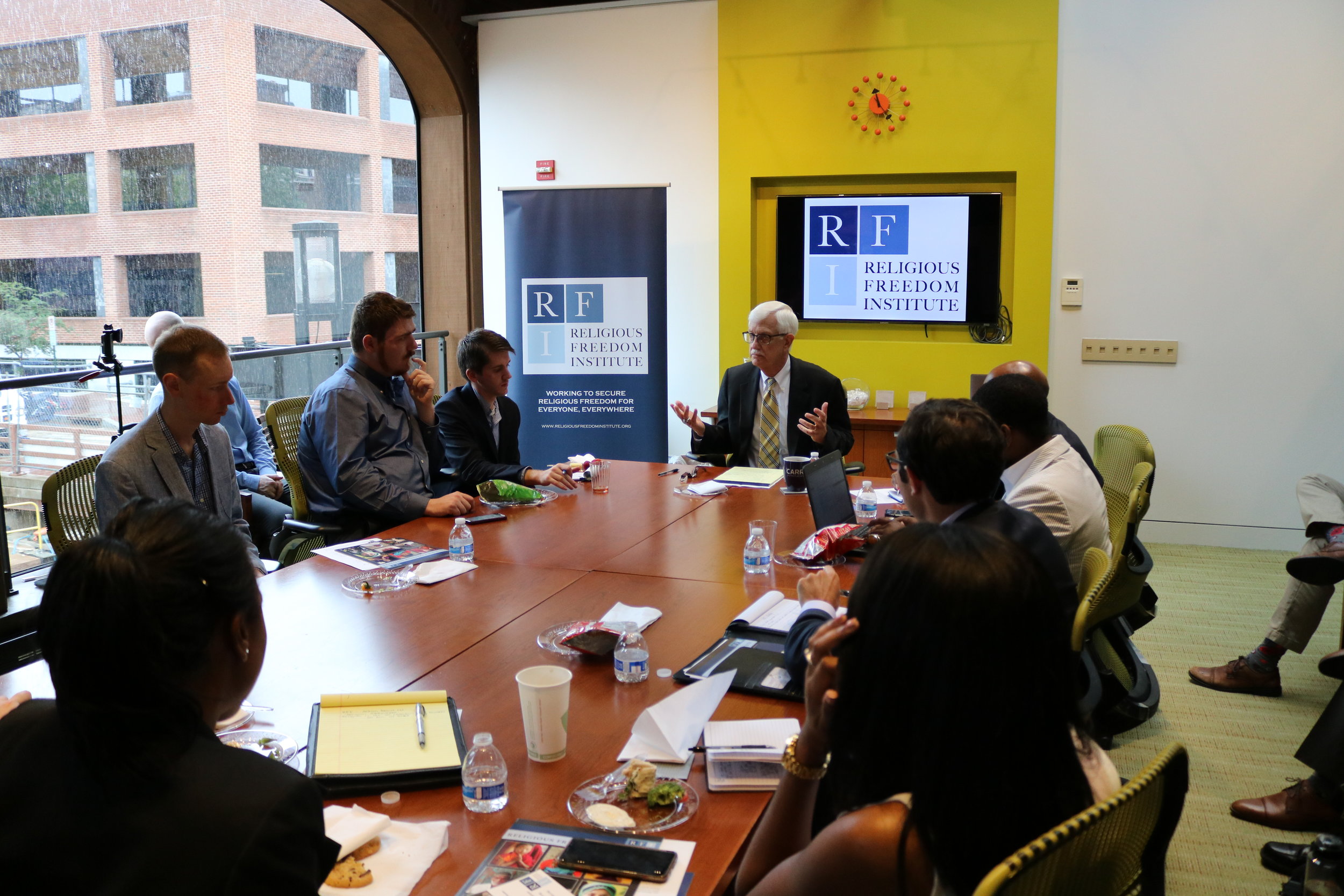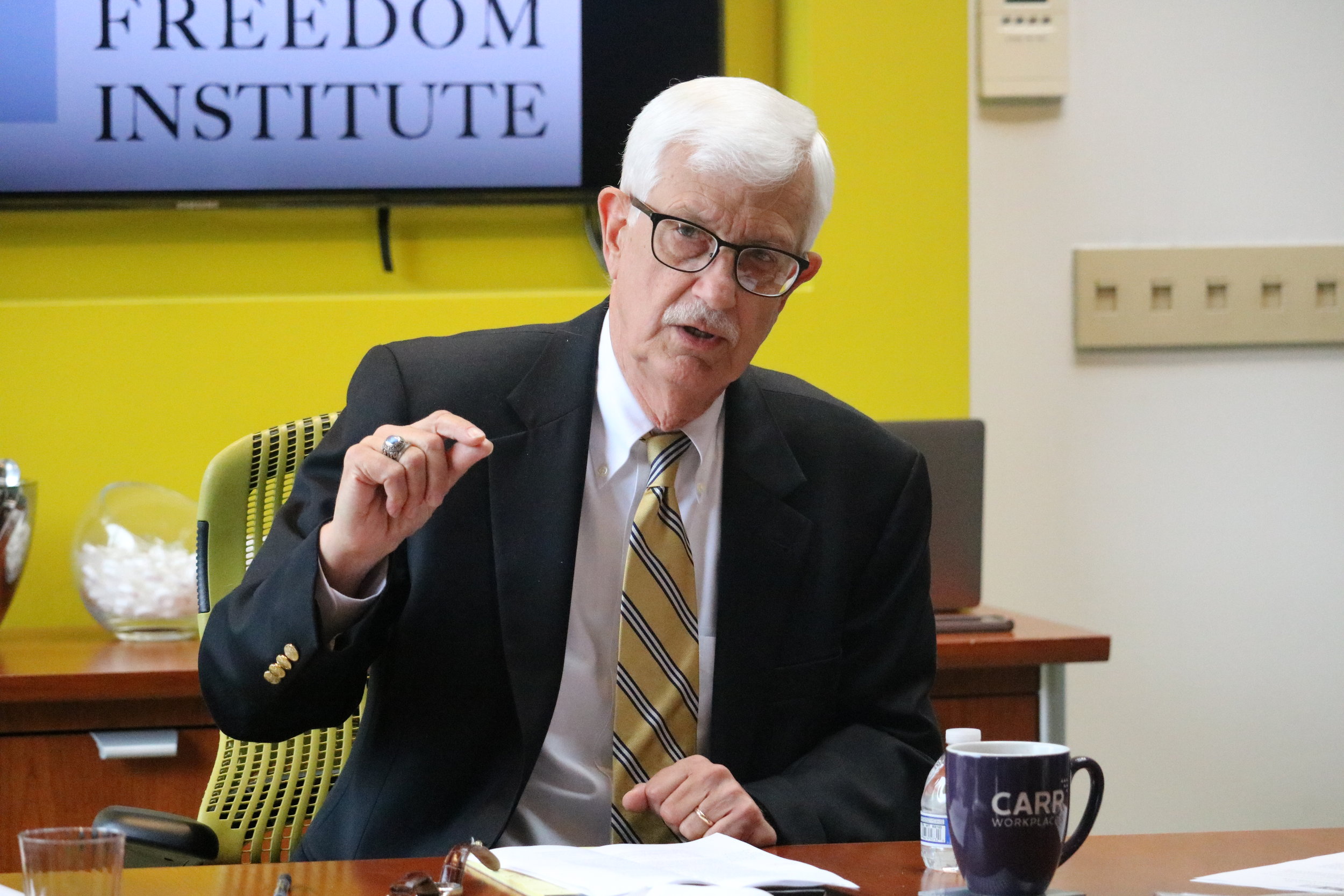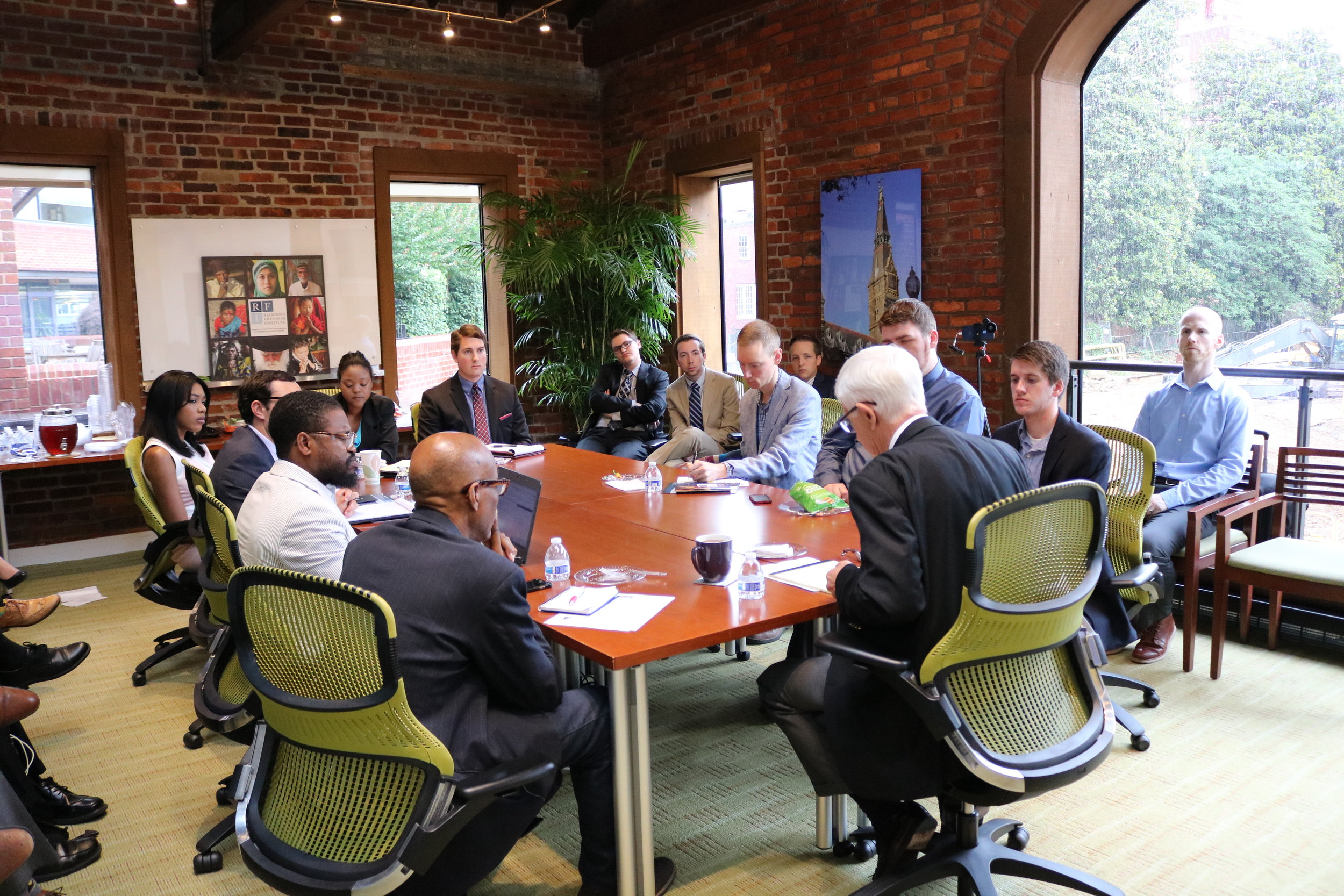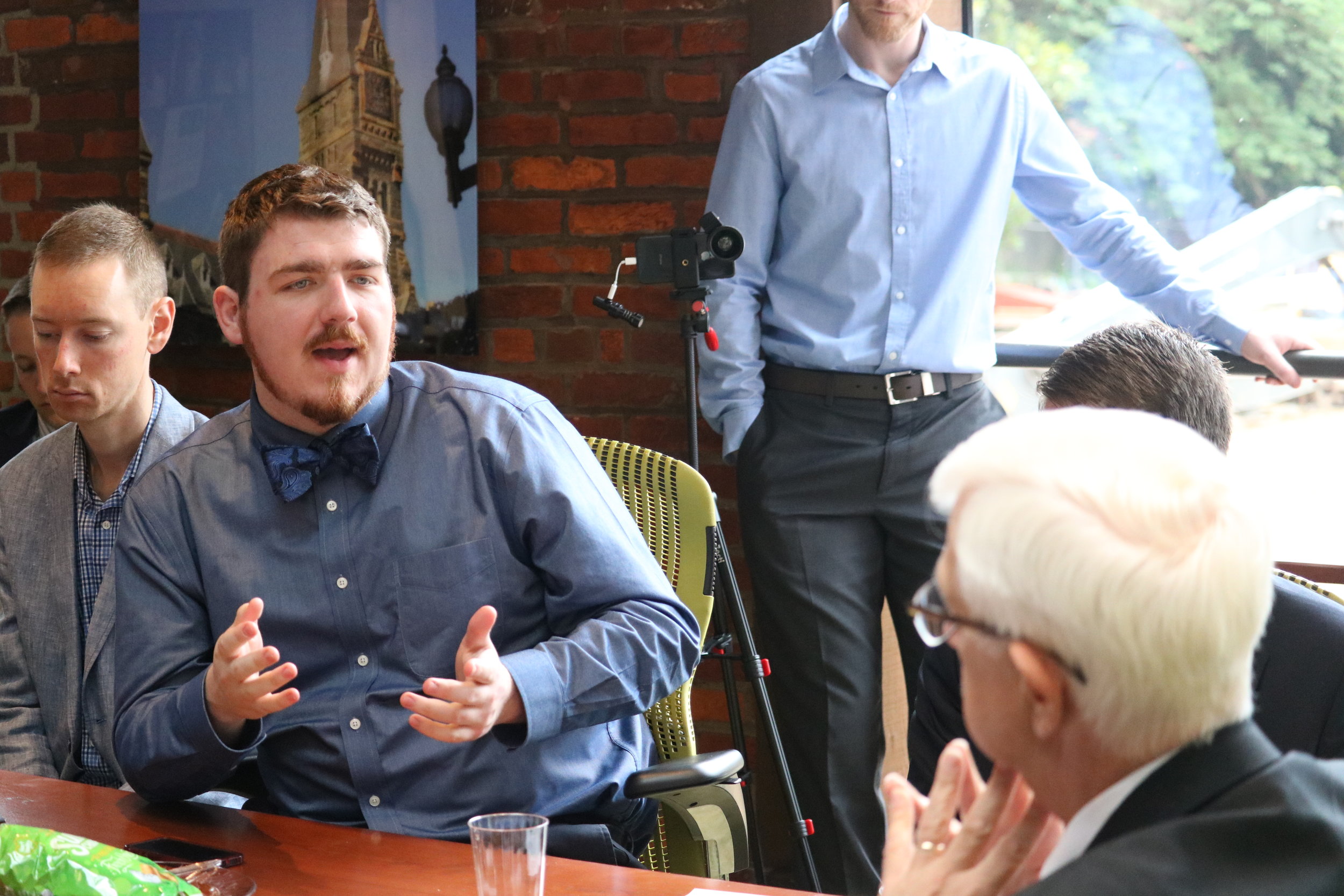On June 27th Dr. Thomas Farr, President of the Religious Freedom Institute, led RFI’s 2018 Summer Speaker Series discussion on “The Fourth of July, the Founders and the First Freedom”, bringing together his experiences in academics, foreign policy, American history and advocacy. Farr’s talk covered the First Amendment, the minds behind this amendment, and how the understanding and practice of religious freedom in the public sphere has changed since the 18th century.
Interns, young professionals, practitioners and academics were in attendance and included individuals from International Christian Concern, Liberty Counsel, Church of Latter-Day Saints, and graduate students from various institutions.
After a word on RFI’s mission and purpose, Dr. Farr posed questions to prepare the audience for the discussion on religious freedom: Why is religious freedom the “first freedom”? Why should we advocate for religious freedom? How should the First Amendment be interpreted?
According to Farr, religion was incredibly influential in the lives of the Founding Fathers who went to great lengths to enshrine its protection in the constitution. They rightly believed that religious freedom, including the right to practice your religion publicly, inspires a vibrant civil society with religious communities as the cornerstone. Such a civil society must arrive at important policy decisions through dialogue and debate about the public good.
In addition, Farr contends that religion shapes behavior in a way that goes beyond religious customs and rites. Studies show that nations with high levels of religious freedom also have highly developed economies, and he posits there is more at work than simple correlation. Religious values which adherents strive for, such as diligence, loyalty and honesty, are a positive force in society and can help contribute to the economy. Nations with greater religious freedom are also more stable, which attracts greater international investment.
Another reason the Founders advocate for religious freedom in historical documents is equality. Dr. Farr argues that there is no better motivator for equality than the idea that a supernatural power created everyone with “unalienable rights”–the basis for the second sentence of the U.S. Declaration of Independence.
Compared to other countries the United States has robust protections for religious freedom and freedom of expression. Dr. Farr argues that the two are currently under attack in the United States. He suggests that if American society continues toward a more French understanding of religious liberty–an absence of religion in public life–U.S. efforts to convince other states the value of religious freedom would lose credibility.
This is a dangerous trend in a time where promoting religious freedom is of utmost importance. Religious persecution and intolerance are on the rise almost everywhere. Pew Research Forum found that over 83 percent of the world’s population faces restrictions on religious freedom in some way. Promotion of religious freedom must become a lasting and integral part of the United States foreign policy and defense strategy. But if other nations do not see protection of public religious expression in the United States, America’s arguments for the societal benefits of religious liberty will likely fall on deaf ears.
A question and answer session following the address included questions concerning China’s economic growth and lack of religious freedom, tension between religious freedom and human rights, as well as dynamics between government institutions and religion. Afterwards, attendees had the opportunity to network and continue the discussion.
The Religious Freedom Institute’s NextGen: Summer Speaker Series is a program designed to educate the public about religious freedom generally and delve into specific areas of public policy in respect to religious freedom and practice. The final part of the series will be held on July 11th, when Andrew Bennett, the former Canadian Ambassador for Religious Freedom gives “An Insider’s Look at Diplomacy and Religious Freedom.”
THE RFI BLOG

Is Egypt’s Government Trying To Take Over Christianity’s Most Important Monastery?

Does Southeast Asia Lead the World in Human Flourishing?

RFI Leads Training Session on Religious Freedom Law and Policy for U.S. Army War College

Oral Argument in Charter School Case Highlights Unconstitutional Motives Behind OK Attorney General’s Establishment Clause Claim

Largest Longitudinal Study of Human Flourishing Ever Shows Religion’s Importance
CORNERSTONE FORUM

Reaffirming Religious Freedom: Bridging U.S. Advocacy and Iraq’s Constitutional Framework

Political Polarization, Same-Sex Marriage and Religious Liberty

Bridging the Gap Between International Efforts and Local Realities: Advancing Religious Freedom in the MENA Region

Challenges to Religious Freedom in Iraq and the Critical Need for Action





